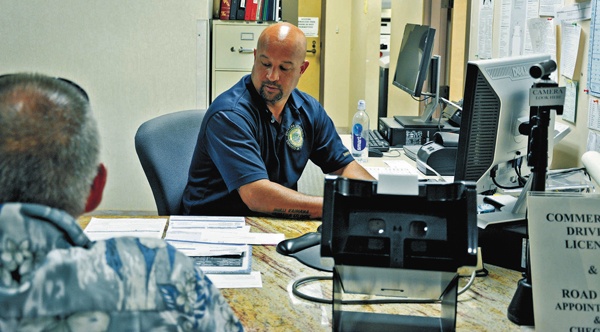LIHUE — Proposed legislation would amend state requirements to allow undocumented residents to qualify for a driver’s license in the interest of public safety, identification and insurance coverage.
The “Safe and Responsible Driver’s Act” was authored by West Oahu Sen. Will Espero. If passed, it would allow access to driver’s licenses for individuals who cannot show proof of citizenship, permanent residency, or non-immigrant aliens status.
That’s a lot of people.
A 2013 report from the Institute On Taxation And Economic Policy estimates that about 40,000 unauthorized immigrants in Hawaii are paying $60,266,000 a year in state and local taxes. This includes $41 million via the GET, $6 million in property taxes, and $12 million, or 6.4 percent rate, in income taxes each year.
“This bill will improve public safety for drivers, pedestrians, residents of and visitors to Hawaii, by helping ensure that eligible drivers pass a driving test and obtain proof of insurance before driving their vehicles in Hawaii,” stated Espero, who chairs the Senate Committee on Public Safety.
An Immigrant Policy Project report notes that in 2013, eight states, California. Colorado, Connecticut, Illinois, Maryland, Nevada, Oregon and Virginia, joined New Mexico, Utah, Washington and Puerto Rico in extending driver’s license eligibility to unauthorized residents.
New Mexico claims that the rate of uninsured motorists went from 33 to 9 percent since allowing licenses to undocumented immigrants in 2003, according to Espero.
The bill would also create a more trusting relationship between the undocumented and local law enforcement, Espero stated. Police, emergency responders and health providers would be able to perform their jobs more “safely, effectively and efficiently” if driver’s are licensed with accessible records.
The 2010 U.S. Census does not give an estimate on undocumented residents for Kauai. It notes that 15.7 percent of residents are foreign born, as compared to 18.1 percent statewide.
“Our office along with the statewide law enforcement community, is studying these bills closely to see what their ramifications could be for public safety,” said County Prosecuting Attorney Justin Kollar. “Recent changes in federal law have made it very difficult even for lawful residents and many of our kupuna to acquire driver’s licenses because of new paperwork requirements.
“We certainly want to see the operators on the roadways doing so lawfully and we want our legal residents to be able to acquire the identification they need to conduct their business,” he added.
The legislation does concern some groups.
The reply from the Hawaii Republican Party is that the proposal intending to improve road safety presents security issues that require careful study.
“Most undocumented workers are hard workers who contribute to our economy but national security concerns need to be considered,” said David Chang, HRP state chairman. “We have spent billions of dollars since 9/11 to secure our borders, yet we still have a major problem with illegal aliens in Hawaii and across our nation.”
At least three of the 9/11 hijackers had overstayed their visas and were illegal aliens at the time of the attacks, he said. Terrorists exploit America’s tradition of welcoming asylum seekers, students, tourists and business visitors.
The majority are here to pursue the American Dream, he added. But state-issued licenses and photo IDs can clear TSA security to board commercial aircraft.
“I am a second generation immigrant whose parents became citizens through lawful means,” he said. “These types of proposals can create an incentive for illegal immigration while making our homeland even less secure and more vulnerable to terrorism within our borders.”
The Kauai Police Department declined to comment.
“The county has not yet taken a position on the bill as we are still discussing the potential ramifications and the extent to which our residents would be impacted by this bill should it pass,” said Steve Hunt, Kauai finance director




